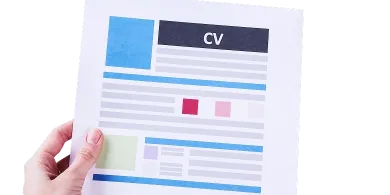Table of contents
Generally, there’s no particular rule to this matter. Although recruiters’ arguments about which person is more relevant for use in professional CVs proved that third-person resumes have no such dynamic impact on the reader as the one written in the first person.
Also, job seekers have to remember that CVs should be about YOU selling YOURSELF. And from a psychological point of view, a strong first-person action verb creates more powerful CV statements and comes far more naturally.
That means by using third-person statements you would hardly leave an impression of a distinctive candidate with unique qualifications and a strong personal brand.
One of the most common introductory paragraphs for your Curriculum Vitae is a personal or career profile. It contains a short summary of your background experience and future career objectives.
This section is crucial for catching the employer’s attention, thus you have to know exactly what points of your CV profile can bring you success. After we figure out how to start your CV document, it’s also important to know what to write for a CV profile in general.
Writing a CV career profile helps to highlight your key interests and skills. CV profile is placed at the beginning of your document and has its own structure.
This section is especially helpful for employers, who go through hundreds of applications every day and have no time to review the entire CV. We have already explained how to start a CV profile, so you want to learn that first. After you came up with a great opening sentence, here comes the main part, and here is what you must include in one:
Note down that Curriculum Vitae itself can stay untailored as you send its copy to different employers and specific positions. However, when it comes to your CV profile, it must always be customized. You should know everything about your target position. It will help you highlight the most interesting qualifications and experience.
Don’t make the entire CV career profile longer than 100 words. The headline sentence summing up your key experience and plans is also included in those 100 words.
The main part of the summary is just a part that contains more detailed information about your achievements, experience, and even interests. Again, you must stop on the most relevant qualifications that match up to your target position.
